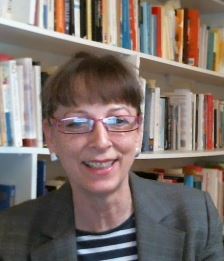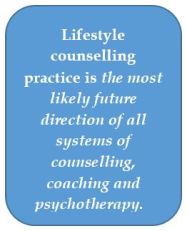*Comfort and passion in sex-love relationships*:
I have heard it said that happy relationships consists of a
good balance of ‘comfort’ and ‘passion’.
Of course, we then need to look at what produces ‘comfort’, and I think
the answer is that given by Erich Fromm, in defining love as ‘care, respect and
responsibility (plus an interest in who your partner is, and how they feel,
right now!)
What about the passion side?
Some people think that is straightforward. Unfortunately, too many men still think that
the definition of passion in romantic relationships is this: intercourse;
penetration; ‘shafting’.
However, in my book on how to build a successful
relationship, I include this alert by Daniel O’Beeve:
Appendix G: The importance of the clitoris
G1 The myth of the vaginal orgasm
In this appendix, I
will write about Daniel O’Beeve’s first love affair:
His girlfriend, Belinda,
informed him up front how bored she became with sex, when she had been involved
with a new man for a few weeks! He assumed (for a completely unknown reason),
that this would not apply to him.
Six weeks later she
had betrayed him with another man.
He left, found a
copy of a book entitled The Myth of
the Vaginal Orgasm on the railway platform, as he left town, and studied
that book on the train.
What did he learn from
that reading?
1. That the male
theory of human sexual relations, which he had picked up from his culture by
osmosis, was false. It was not enough to
insert one’s penis into a woman’s vagina, and to thrust it in and out, in order
to produce mutual pleasure. (It produced
undoubted pleasure for the man, and most men failed to ask the woman: ‘How is
this for you?’)
2. Sexual
intercourse is the most enjoyable part of sexual relations for the man – but for the man only! It does not produce an orgasmic experience
for the woman - (or not reliably, in some
cases; and not at all in perhaps
most)!
For example, in an
article about her new book, Germaine Greer (2018) quotes the “statistics of
sexologists” as showing that “46% of women fake
orgasm every time they have sex”.
And they do this to bring the experience of intercourse to an end.
3. For most women,
on most occasions, only direct
stimulation of the clitoris[i],
by digital (finger) or lingual (tongue) massage, will bring her to orgasm. (And any man can ask his partner to teach him how to do that!) And just in
case some readers insist that my data are not up to date, and that things must
have improved in recent years, I offer you this extract from the Metro
Newspaper of Thursday November 22nd 2018:
“...A study
conducted by Durex in the Netherlands last your (2017) showed that almost 75%
of women do not orgasm during sex, whereas only 28% of men don’t climax... And
it’s getting no better: this month a study in The Journal of Sexual Medicine
revealed that of 1,700 US newlyweds, 43 per cent of husbands had no idea how
often their wives orgasm. So, in straight sex, there does seem to be an Orgasm
Gap.” (Page 39)[ii].
Part of the problem
may be... For more, please go here: https://abc-counselling.org/happy-marriage-or-couple-relationships/















 In my book on expressive writing, I have included more than twenty exercises for dealing with a broad range of problems and goals. The first two deal with daily planning and reflection. The third deals with a start of the day system of ‘stream of consciousness’ writing.
In my book on expressive writing, I have included more than twenty exercises for dealing with a broad range of problems and goals. The first two deal with daily planning and reflection. The third deals with a start of the day system of ‘stream of consciousness’ writing. By Dr Jim Byrne, with Renata Taylor-Byrne
By Dr Jim Byrne, with Renata Taylor-Byrne Because this book explains how to integrate diet and nutrition, inner dialogue, physical exercise, re-framing of experience, and sleep science into *Lifestyle Counselling* practice. And lifestyle counselling practice is the most likely future direction of all systems of counselling, coaching and psychotherapy.
Because this book explains how to integrate diet and nutrition, inner dialogue, physical exercise, re-framing of experience, and sleep science into *Lifestyle Counselling* practice. And lifestyle counselling practice is the most likely future direction of all systems of counselling, coaching and psychotherapy. 





